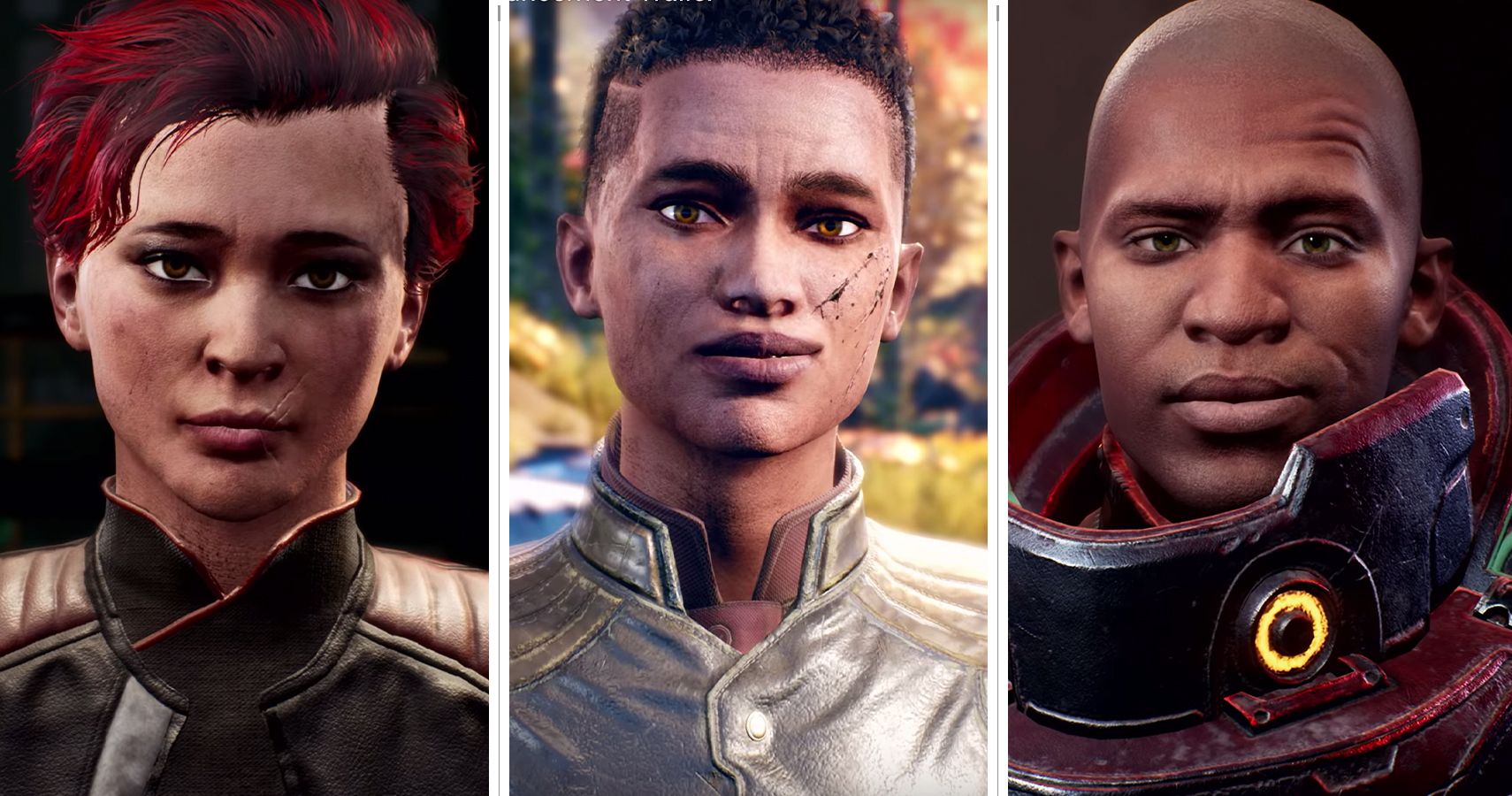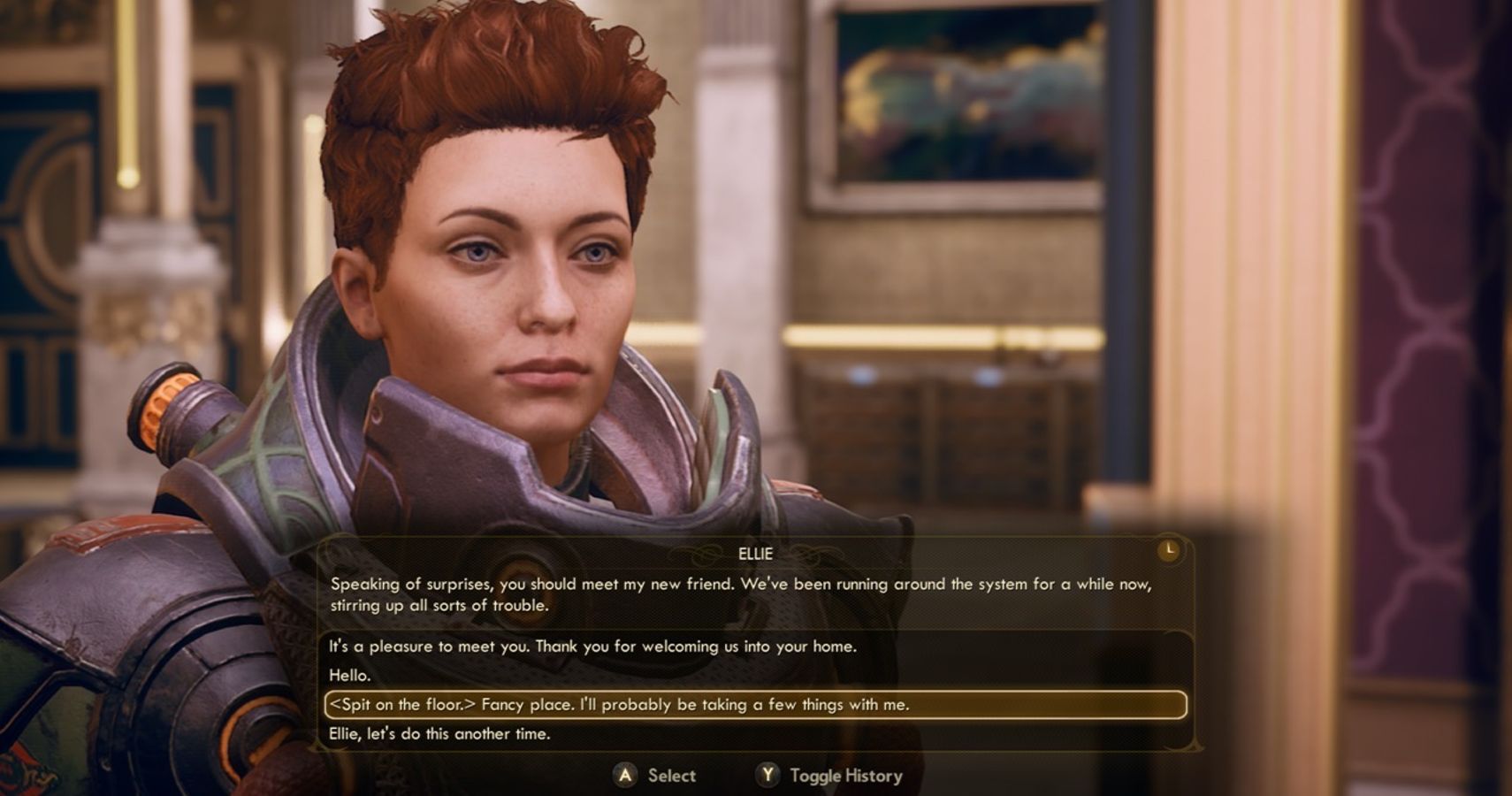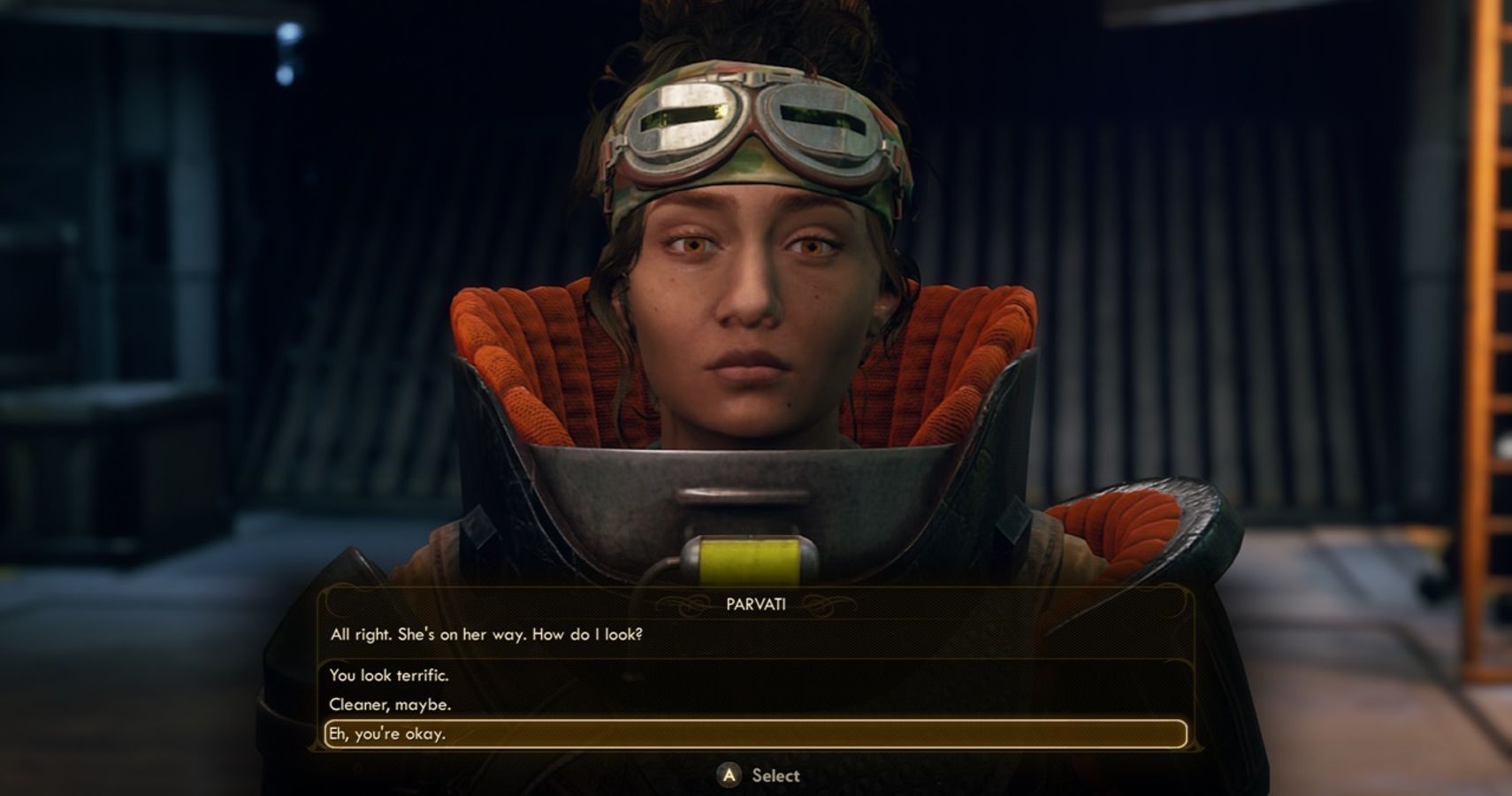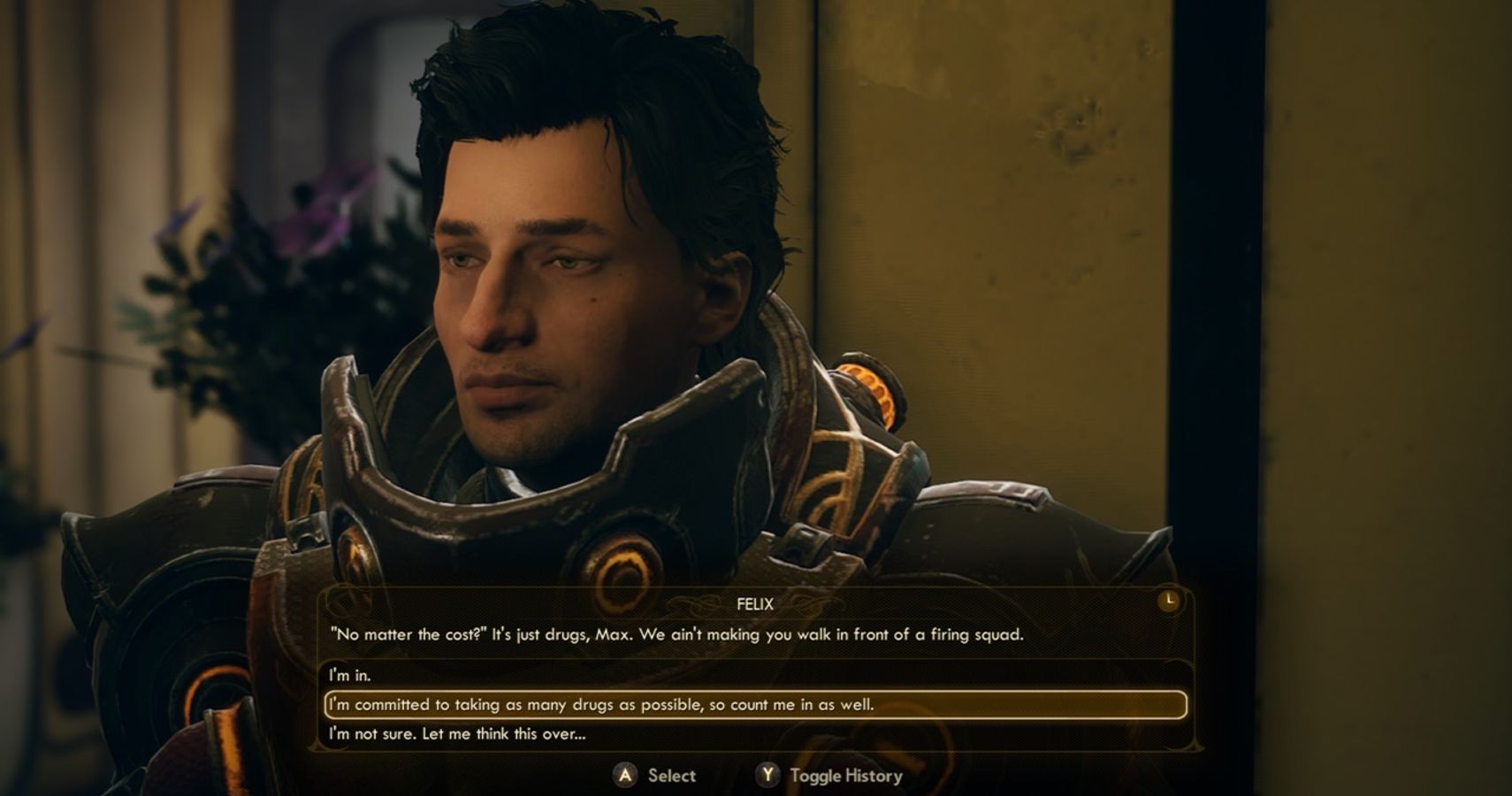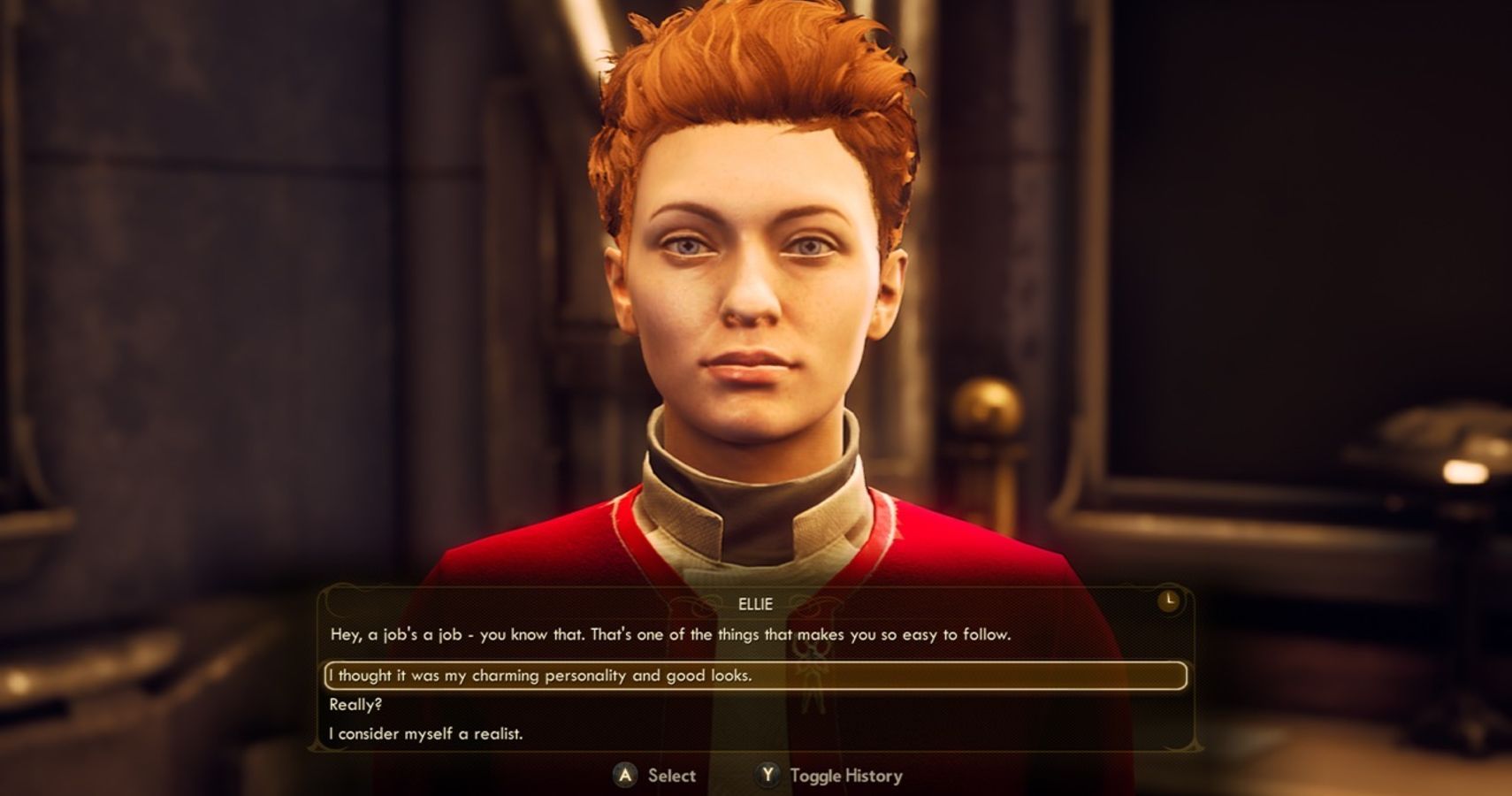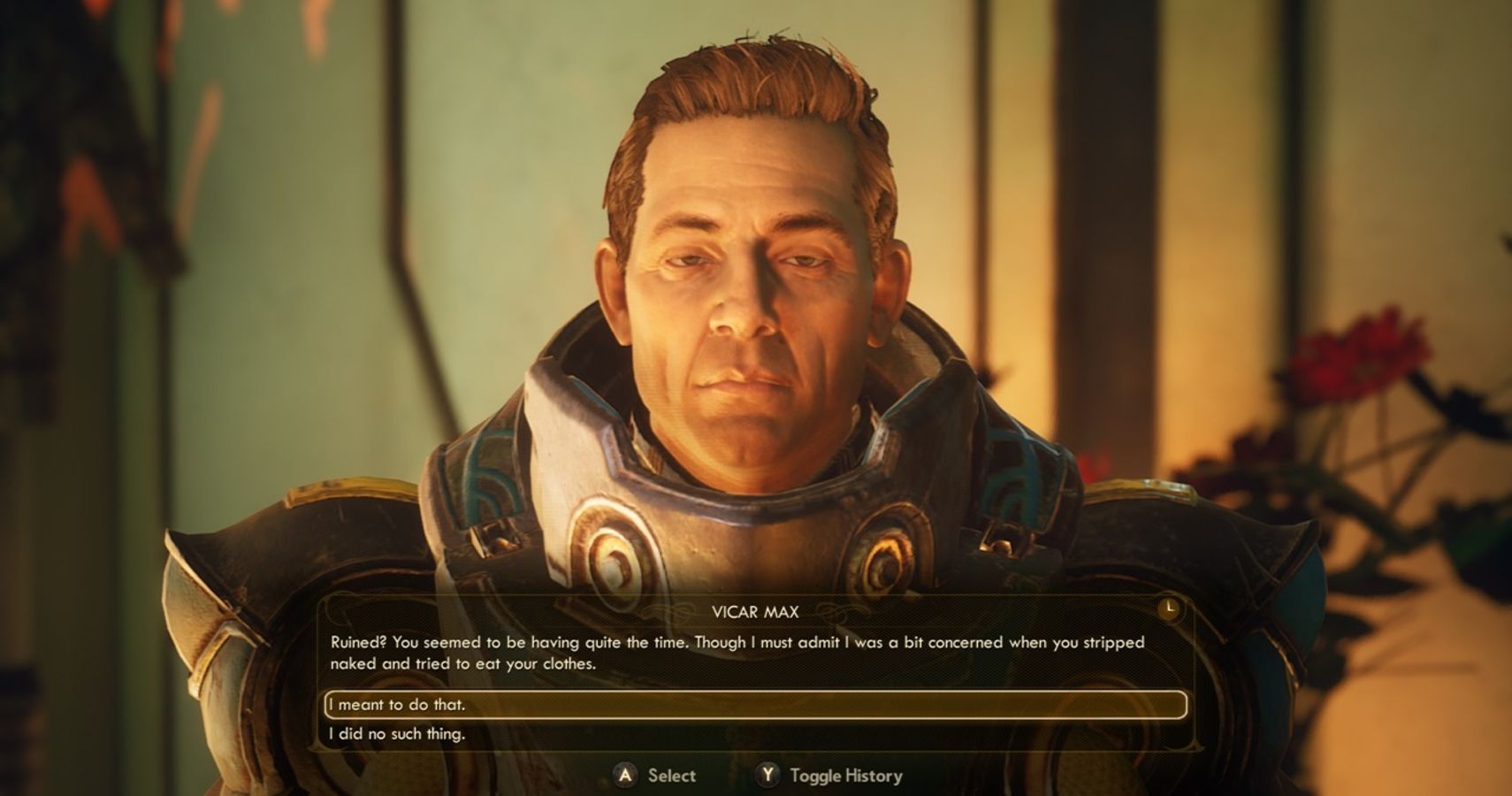The Outer Worlds is a terrific sci-fi tale that explores what would happen if corporate consumerism took over basic human decency. As a space-themed story-driven RPG, it offers the fun and engaging gameplay experience bigger budget releases like Anthem, Mass Effect: Andromeda and Fallout '76 failed to deliver. The game could have easily fallen into the same traps that impacted the success of those other titles. Instead, it stuck with simple mechanics and placed a strong emphasis on storytelling through dialogue.
Within a beautiful setting that allows players to complete missions and kill bad guys in the name of the greater good (or greater bad, if they so choose), there’s so much to discover in this unique world. NPC interactions give clues and context for the game's overarching narrative. Numerous dialogue options allow players to assume roles as multifaceted as human beings themselves. For instance, gamers can choose to become two-faced, greedy liars when dealing with merchants, but then turn around show kindness toward crew members.
The Outer Worlds takes the concept of the dialogue-driven RPG and vastly improves it by focusing on a well-told story. In developing the title, the game's co-writer/directors, Leonard Boyarsky and Tim Cain, brought decades of gaming industry experience with them. They appear to deeply understand the trials of slogging through an interesting game that's hurt by superficial storytelling. As such, they crafted a story that was smart, funny, sophisticated and socially conscious, told through the eyes of the people living it. The result is something grounded in the truthfulness of human interactions.
The Outer Worlds isn’t the first game to offer interesting dialogue options. But it might be one of the first to let players tell one of their companions “F*** if I know" or give them the option to spit on the floor without detracting from the goal at hand.
The tone is similar to that of Fallout: New Vegas. That's not much of a surprise given that Obsidian Entertainment, the team behind The Outer Worlds, also developed New Vegas. But The Outer Worlds stands apart in the depth of its underlying narrative, which is convincingly told not only through the main quest line but through the character quests and dispositions along the way.
The Outer Worlds lets players be as kind or as callous as they'd like. Pump up the character’s Lie, Persuade and Intimidate skills, and they can bully or manipulate NPCs into taking completely different courses of action.
There’s something humbling about how this plays out. Humans are complicated, and sometimes they have the tendency to snap at annoying loved ones. So, why shouldn't the protagonist be annoyed that Pavarti is acting like a lunatic about her crush?
Compare this with other games, such as Anthem. Some people felt as though the developer's decision to limit dialogue options in that game was an error in judgment. The lack of an interesting narrative may have ultimately been a factor that contributed to players' overall disappointment with the title. In most cases, Anthem offers merely standard responses that amount to “I agree” or “I don’t agree.” In limited contexts, it offers NPCs some empathy or skepticism.
But often, that’s not how someone would react in a given situation. In reality, a person might respond with a sarcastic jab or simply tell someone they don’t have time for a sob story. The Outer Worlds has fantastic dialogue concepts that go one step deeper than the surface-level options that serve to drive the story. Players' characters transform into real people who make real choices as to what to say. Frequently, they don't know the consequences of their dialogue choices. Sometimes, their responses inject humor into otherwise straightforward options.
Comedy is something this game does particularly well. In contrast, many people recently criticized Borderlands 3 for its juvenile humor. One popular comedy writer and former game journalist, Mike Drucker, even pointed at Borderlands 3 and suggested game developers hire actual comedy writers to develop better video game comedy.
The dialogue choices in The Outer Worlds make it clear there was a calculated effort to develop authentic interactions. Comedy comes from the truthfulness of the situation, not from throwaway jokes and forgettable pop culture references. It's nuanced, and that makes it all the better.
The Outer Worlds is a good game, seeded with fun leveling mechanics and interesting quests. It can become a bit of a grind, however, and it’s not exactly the most difficult game to master. There are plenty of other beautifully-designed RPGs out there, and some of them do leveling, looting and questing better than The Outer Worlds.
Without this emphasis on strong dialogue, The Outer Worlds might just be another playthrough experience to add to a long line of titles that offer slightly different takes on the same concept.
But because it went the extra mile in constructing realistic human interactions, the game creates a memorable experience within its world of predetermined outcomes.

